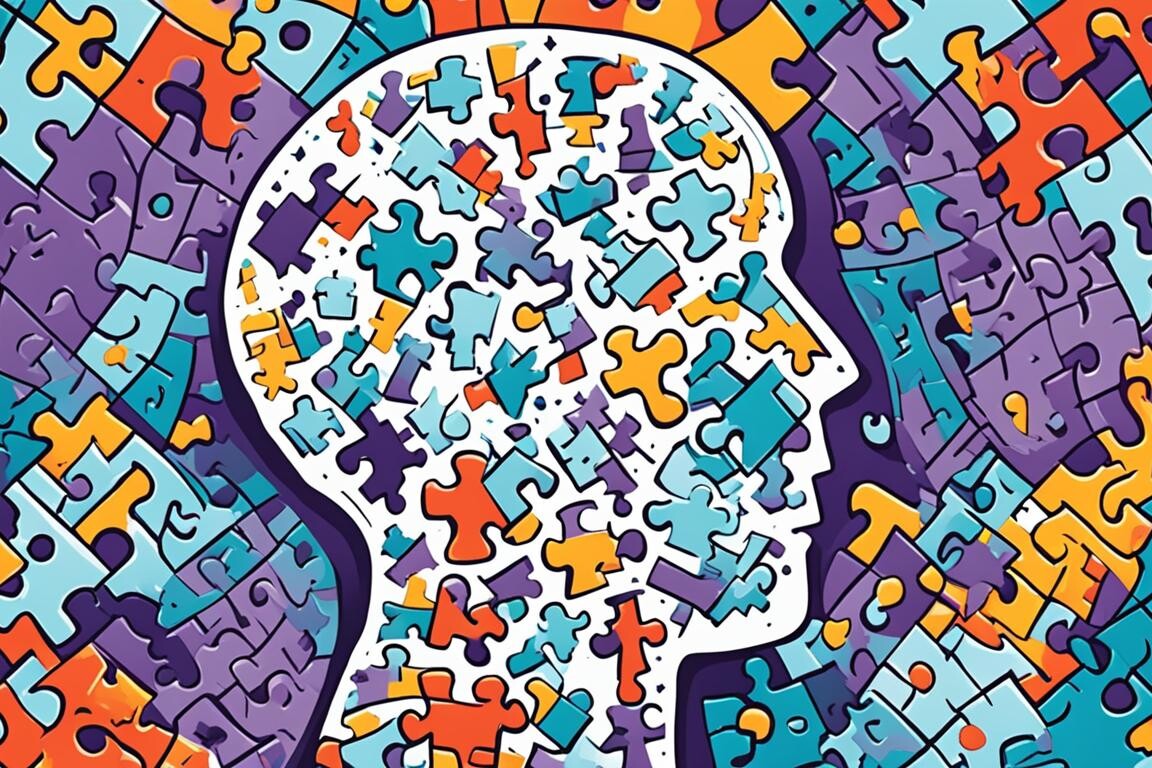Caring for Loved Ones with Dementia: A simple guide for people with Alzheimer’s
Understanding Dementia: A Deeper Dive
Dementia is often misunderstood, so let’s shed more light on it. It’s more than just the occasional forgetfulness; it’s a significant decline in cognitive function that affects daily living. Here are some
key points to better understand dementia:
- Not Just Memory Loss: While many associate dementia with memory loss, it encompasses much more. It affects reasoning, communication, focus, and even the ability to perform basic tasks.
- Various Causes: Dementia can be caused by different diseases, the most common being Alzheimer’s. Other causes include vascular problems (like after a stroke), Parkinson’s disease, and more.
- Progressive Nature: Dementia typically worsens over time. Early on, symptoms might be mild, but as the condition progresses, they become more pronounced, impacting the person’s independence.
- Individual Experiences: Each person’s experience with dementia is unique. The rate of progression and the combination of symptoms can vary widely from person to person.
- Emotional Impact: Apart from cognitive changes, dementia can affect a person’s mood and emotions. It’s common to see changes in personality, increased anxiety, or even depression.
- More Than Age-Related Changes: It’s crucial to distinguish between normal age-related changes and dementia. Occasional forgetfulness, like misplacing keys, is normal as we age. In contrast, dementia involves more significant memory loss, such as forgetting familiar faces or getting lost in known places.
Creating a Safe and Comfortable Environment for Someone with Dementia
When someone has dementia, their home needs to be a safe and cozy place. Imagine you’re setting up a giant, comfy nest where they can feel secure and happy. Let’s talk about how to do this:
- Remove Dangers: Look around the house for things that might cause falls or accidents. This means picking up clutter, securing loose rugs, and making sure the floors are not slippery. It’s like childproofing but for adults.
- Locks on Cabinets: Some things in the house can be dangerous, like cleaning supplies or medicines. Keep these in cabinets with locks so there’s no chance of a mix-up or an accident.
- Signs and Labels: Put labels or signs on doors and drawers. For example, a sign on the bathroom door helps them find it easily. It’s like having a helpful treasure map in the house.
- Good Lighting: Make sure the house is well-lit. Bright lights help them see clearly and avoid bumping into things. It’s like turning on the sun inside the house.
- Comfortable Furniture: Have cozy chairs and sofas with cushions. It’s important that they have a comfy place to sit or rest, like a soft, cuddly spot.
- Safe Kitchen: In the kitchen, it’s a good idea to have appliances that turn off automatically. Also, keep sharp objects like knives out of reach.
- Avoid Loud Noises: Loud sounds can be scary or confusing. Try to keep the home quiet and peaceful, like a calm, serene forest.
- Familiar Things: Surround them with things they love, like photos, their favorite blanket, or a special mug. These familiar items are like friendly faces that make them feel at home.
Communication Tips for Interacting with Someone with Dementia
Communicating with a person who has dementia can be like learning a new language. It’s all about being patient, kind, and creative. Here are some tips to make talking and listening easier for both of you:
- Use Simple Words and Short Sentences: Think of how you’d explain something to a younger sibling. Use easy words and keep your sentences short. This makes it easier for them to understand and respond.
- Speak Clearly and Calmly: Imagine you’re talking to a scared kitten. You wouldn’t shout or rush. Speak in a gentle, soothing voice. This helps them feel safe and less confused.
- Listen with Your Heart: Sometimes, what they’re trying to say might not make sense right away. Listen not just with your ears but with your heart. Show that you’re trying to understand, even if it’s tough.
- Body Language Matters: Use friendly gestures like smiling or a gentle touch on the shoulder. This can be comforting, like a warm hug with your actions.
- Avoid Arguing: If they get something wrong, it’s okay. Imagine if you were in a maze and took a wrong turn. You wouldn’t want someone to scold you. Gently guide them back or move on to another topic.
- Use Visual Aids: Sometimes, showing is better than telling. Use pictures or objects to explain things. It’s like using props in a play to tell the story.
- Be Patient: There will be good days and bad days. Think of it as a garden. Some days, it blooms beautifully; other days, it needs extra care. Give them time to respond, and don’t rush them.
- Repeat if Necessary: You might have to say things more than once. It’s like when you’re learning something new at school. Sometimes, hearing it again makes it clearer.
- Reminiscing is Good: Talk about old memories. It’s like flipping through a favorite book. Older memories are often clearer for them.
- Humor Helps: A good laugh is like sunshine on a cloudy day. If you can, make jokes and laugh together. Just be mindful of what makes them happy and what doesn’t.
- Include Them in Conversations: Don’t just talk to others around them. Talk to them directly. It’s like playing a game where everyone gets a turn. They should get their turn, too.
- Avoid Correcting Them: If they say something that’s not true, don’t correct them harshly. It’s like telling someone their favorite color is wrong. Instead, focus on the feelings behind their words.
Nutrition and Mealtime for Someone with Dementia
Feeding someone with dementia is like being a chef and a detective at the same time. You have to figure out what foods they like and what they can eat easily. Here are some tips to make mealtime a happy, healthy time:
- A Rainbow on the Plate: Think of their plate as a canvas for a colorful painting. Fill it with different colored fruits and vegetables, like red tomatoes, green broccoli, and yellow bananas. It’s not just pretty; it’s healthy too!
- Easy-to-Eat Foods: If they have trouble chewing or swallowing, think of soft foods like mashed potatoes, applesauce, or scrambled eggs. It’s like making sure the food is as soft as a cloud.
- Favorite Foods: Everyone has favorite foods. Try to include foods they’ve always loved. It’s like playing their favorite songs during mealtime.
- Small, Frequent Meals: Instead of three big meals, think of giving them small meals throughout the day. It’s like having little food parties more often!
- Stay Hydrated: Water is super important. Offer them fluids regularly, but not just water – think fruit juices or milk. It’s like keeping a little river of drinks flowing throughout the day.
- Safe Eating Environment: Make sure they’re sitting comfortably and the area is calm and quiet. It should feel as cozy as a nest.
- Be Patient: Sometimes, they might eat slowly or not want to eat. Don’t rush them. It’s like waiting for a flower to bloom. It takes time.
- Eating Together: If you can, eat with them. It’s like having a meal with a friend. It makes eating a fun, social time.
Daily Routines and Activities for Someone with Dementia
Creating a daily routine for someone with dementia is like setting up a treasure map for them every day. It guides them through the day with familiar landmarks. Here’s how to create a comforting routine:
- Regular Schedule: Like the sun rising and setting, try to keep their day predictable. Have meals, bedtime, and activities at the same times each day. It gives them a sense of safety, like knowing what to expect next.
- Simple and Enjoyable Activities: Include activities they like and can do. It could be something like folding laundry, coloring, or gardening. Think of activities that make them smile, like finding little joys throughout the day.
- Encourage Movement: Gentle exercises are great. Think of fun ways to move, like dancing to their favorite music or taking a walk in the park. It’s like keeping the body and mind dancing together.
- Limit Naps: Too many naps can make sleeping at night hard. It’s like saving their sleep for when it’s dark so they rest better.
- Quiet Evenings: As the day winds down, help them relax. You could listen to soft music or read a book together. It’s like calming the waves before bedtime.
- Participation in Daily Tasks: Let them help with simple tasks, like setting the table or watering plants. It’s like giving them a special role in a play, making them feel useful.
Memory Therapy and Stimulation for Dementia Care
Here are some ways to help them keep their brain engaged:
- Memory Games: Think of simple puzzles or matching games. These are like little brain exercises, keeping their mind active.
- Music and Art: Play their favorite songs or let them draw and paint. It’s like a dance party for the brain, bringing back happy memories and feelings.
- Photo Albums: Looking at old photos together is like going on a treasure hunt through their past. It can spark memories and stories.
- Reminiscing About the Past: Talk about their favorite memories. It’s like rewinding a favorite movie and watching the best parts again.
- Reading Together: Read a book or a short story to them. It’s like going on an adventure in their imagination.
- Sensory Stimulation: Use things that stimulate their senses, like soft fabrics to touch or scented candles. It’s like giving their senses a gentle hug.
- Pet Therapy: If possible, let them spend time with a gentle pet. It’s like having a furry friend who gives love without needing words.
- Outdoor Time: Fresh air and nature can be very soothing. A walk in the garden or park is like a mini-vacation for their mind.
Handling Behavioral Changes in Dementia Care
Dealing with behavioral changes in someone with dementia can be like navigating a ship through unpredictable waters. Sometimes, it’s smooth sailing; other times, it gets a bit choppy. Here’s how to steer through these changes:
- Stay Calm: When they get upset or confused, think of yourself as a calm, soothing voice in a storm. Speak gently and keep your cool, even if it’s tough.
- Distraction Techniques: If they become agitated, try to gently switch to a different activity or topic. It’s like changing the channel when a scary movie comes on.
- Understanding Triggers: Pay attention to what upsets them. It could be loud noises, a crowded room, or even a certain time of day. It’s like being a detective looking for clues.
- Create a Relaxing Environment: Keep their surroundings peaceful and comfortable. Soft music or a cozy blanket can be like a warm, comforting hug.
- Routine Helps: A predictable routine can reduce anxiety. It’s like having a map for the day so they know what to expect.
- Be Patient: Patience is key. It’s like waiting for a flower to bloom; it takes time and care.
- Positive Reinforcement: Celebrate their good moments and successes, no matter how small. It’s like giving a high five for every little win.
Personal Care for Someone with Dementia
Helping someone with dementia with their personal care is like being their gentle guide in daily life. It’s important to help them with kindness and respect. Here’s how you can assist:
- Respect Their Privacy: Think of how you would want to be treated if you needed help. Offer assistance with sensitivity, allowing them dignity. It’s like being a respectful helper, not taking over.
- Gentle Reminders: They might forget basic hygiene like brushing their teeth or bathing. Remind them kindly, like nudging a friend who forgot their backpack.
- Adaptive Clothing: Choose clothes that are easy to put on and take off. Think of clothes with Velcro or snap buttons, like quick-change costumes.
- Patient Approach: Getting dressed or brushing hair might take longer. Be patient, like waiting for your turn in a game.
- Regular Bathroom Breaks: Gently remind them to use the bathroom to avoid accidents. It’s like setting a reminder for a fun activity.
- Safe Bathing Area: Make sure the bathroom is safe. Use non-slip mats and grab bars. It’s like setting up a safe playground.
- Encourage Independence: Let them do as much as they can by themselves. It’s like cheering them on in a race, helping only when needed.
Professional Care and Support for Dementia
Sometimes, caring for a loved one with dementia means getting help from professionals. It’s like calling in a team of experts to join your support crew. Here’s how professional care can help:
- Medical Professionals: Regular check-ups with doctors who specialize in dementia ( Neurologists)are important. They’re like navigators who help steer the course of care and treatment.
- Home Care Assistance: Hiring a professional caregiver can provide extra help and give you a break. It’s like having an assistant coach for your team.
- Support Groups: Joining a support group connects you with others in the same boat. Sharing experiences and tips can be comforting, like finding friends on a similar journey.
- Counseling and Therapy: Sometimes, talking to a therapist or counselor helps. It’s like having a guide when the trail gets rough.
- Respite Care: This gives you a break while ensuring your loved one is well cared for. It’s like taking a rest stop on a long drive.
- Educational Resources: Learning more about dementia can make you feel more prepared. It’s like studying for a big test.
Remember, asking for help is a sign of strength, not weakness. It’s about building a team around you and your loved one to provide the best care possible. Each professional brings their own skills and knowledge to the table, making your care team stronger and more effective.
About The Author

Medically reviewed by Dr. Chandril Chugh, MD, DM (Neurology)
Board-Certified Neurologist
Dr. Chandril Chugh is a U.S.-trained, board-certified neurologist with expertise in diagnosing and managing neurological disorders, including migraines, epilepsy, Parkinson’s disease, and movement disorders. His clinical focus includes evidence-based neurological care and patient education.
All content is reviewed for medical accuracy and aligned with current neurological guidelines.




